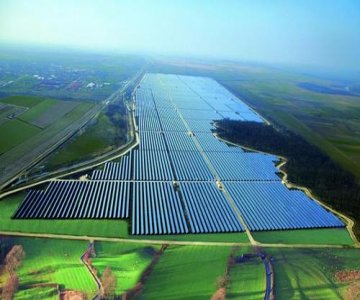Utility Solutions [ Brochure ]

Utility Solutions
Qorx Enegy sell energy to government utilities and independent industrial and commercial customers at predictable fixed prices. Since our energy generation does not rely on fossil fuels, our electricity prices are insulated from the volatility of commodity pricing. We also guarantee the electricity production of our solar power plants to our customers. We offer integrated project development, EPC, financing, O&M services without involving multiple third party services. This approach has allowed us to generate efficiencies of scale that further drive down system costs.
Our Approach
VALUE ENGINEERING
Our in-house EPC allows us to enhance our system design expertise with each successive project, be flexible with our choice of technology and source from top-tier suppliers that optimizes both the system cost and power yield of the total solar block. We are able to further negotiate pricing as we have built a well-recognized brand, strong supplier relationships and significant economies of scale. As a result of our value engineering, we have seen a significant reduction in balance of system costs.
OPERATIONAL PERFORMANCE MONITORING
As the operator of the first utility scale solar plant in India, we have been able to develop and improve on our operational expertise with each successive project to enhance output per watt. We have an advanced tracking system that allows us to manually track the sun's seasonality by adjusting module angles multiple times per year specific to the location, thus increasing the power yield at lower costs. Further, we operate a National Operating Control Center, or NOCC, that allows us to monitor project performance in real-time and allows us to respond rapidly to potential generation anomalies. Feedback from our operating projects also serves to further enhance our project designs, resulting in enhancements for current and new plants and further reductions to our levelized cost of energy.
FINANCIAL STRATEGY
Our integrated business model also increases capital efficiency. We are able to offset project equity requirements through economic benefits generated by our EPC and O&M businesses. Coupled with our asset financing strategy we are able to optimize the overall cost of capital leading to enhanced economics for our customers and shareholders. To enable rapid operation of our projects, we use short term credit facilities that are refinanced with long term project finance facilities. Our strong track record and relationships with local banks offer us significant advantages when it comes to posting capital for bids.
Why Solar ?
Peak power deficits and rising power prices
India continues to be plagued by a persistent demand/supply mismatch with a five-year average energy deficit of approximately 8% through March 2015 according to the Ministry of Power, which has resulted in upward pressure in power prices.
Strong regulatory support
In order to reduce dependence on energy imports and curtail the current trade deficit and the resulting impact on the rupee, the Indian government has taken a number of steps to incentivize the use of renewable sources of energy. To provide further impetus to solar growth, the Indian government launched the Jawaharlal Nehru National Solar Mission, or the NSM, in 2010.
Solar positioned to win among alternatives
India ranks among the highest irradiation-receiving countries in the world with more than 300 days of sunshine per year in much of the country. Solar power generation is viable across most of India, unlike wind and hydro resources which are concentrated in specific regions. In addition, as solar plants can be built near the point of consumption, power produced generally does not incur expensive transmission charges or require infrastructure or transmission investments.
Solar approaching parity
State utilities have seen power costs rise as domestic coal shortages have caused thermal generators to increasingly rely on more expensive imported fuels. An analysis of current tariffs in India indicates that solar power is now competitive with wind, new thermal capacity fueled by imported coal and grid power tariffs for commercial users. Further, diesel power, the most common replacement power source for commercial and off-grid users in the country, is far more expensive than solar power.
Transparent solar auction process
Indian solar auctions are conducted in a transparent manner that ensures bids meet minimum technical and financial criteria. Bidders must meet requirements on project development and execution history in India or the regional market, including bidder experience in the development of similar utility scale power projects. Auctions are not winner-take-all; instead, they are constructed to ensure multiple high-quality developers are allotted portions of the total capacity block.
Certification

